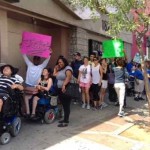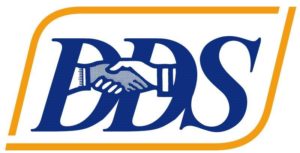5/21/2020
Governor Newsom has released his updated Budget proposal. Called “the May Revise” (because it comes out in May, and revises an earlier proposal), it factors in the major impact of the COVID-19 pandemic on our state’s economy.
See budget documents here
In real terms, this means well over half a billion dollars in money taken away from our service system. Some of this comes from new ideas being cancelled. And a huge part of it is cuts to service providers and regional centers.
However, these are “trigger” cuts. If new federal funding is provided to the states, these cuts will not be triggered. Regardless of whether your member of Congress is a Democrat or Republican, they need to hear from you today!
Advocate For Federal Support for California
A quick call (or email) to your member of Congress is how you can help prevent hundreds of millions of dollars being cut from our service system!
1) Go to https://www.house.gov/representatives/find-your-representative and enter your zip code.
2) When it identifies your representative, click on the “mail” icon under their picture. See Example Below:
3) You may be asked to re-enter your zip code. If you don’t know the extra four digits, that’s usually ok
4) Either fill out the email form, or scroll to the bottom of the screen for the phone number for their office. You can call their district office or the office in
Washington, D.C. (note that D.C. is three hours ahead of California, so call before 2pm)
What do you say? Here is an example:
“I am a constituent of the Representative. Please support extra federal funding for California to help save disability services. And please ask your colleagues in the Senate to support it, too!”
This isn’t about Democrats or Republicans. It’s about the services that make full, integrated lives possible for over 350,000 Californians with developmental disabilities. Your advocacy can make a difference, but only if you act now!
What Services Are To Be Cut in Proposed Budget?
“Absent additional federal funds, the COVID-19 Recession makes the following REDUCTIONS necessary to balance the state budget. These reductions will be triggered off if the federal government provides sufficient funding to restore them”
IN OTHER WORDS, THESE ARE CUTS THAT WILL NOT HAPPEN IF WE GET FEDERAL FUNDING BY JULY 1:
· Rate Reductions, Expenditure, and Utilization Reviews—Adjust provider rates and review expenditure trends resulting in anticipated cut of $300 million
General Fund in 2020-21. (This is approximately a 10% cut to community based services).
-
$31.3 million cut by implementing the uniform furlough schedule, requiring clients and families to go without community based services, and staff to be furloughed 14 days per year.
-
Cost Sharing for Higher Income Families—Establish a cost-sharing program that would result in a cut of approximately $2 million General Fund in 2020-21 and $4 million ongoing.
-
Regional Center Operations—A reduction to the operations budget for Regional Centers. This proposal results in a cut of $30 million General Fund in 2020-21 and $55 million ongoing.
THE FOLLOWING DEVELOPMENTAL SERVICES PROPOSALS ARE WITHDRAWN FROM THE GOVERNOR’S JANUARY BUDGET:
Enhanced Performance Incentive Program—Would have aligned Regional Center performance contracts and require Regional Centers to meet an advanced tier of performance measures and outcomes to be eligible for an incentive payment. This results in a savings of $60 million General Fund in 2020-21, 2021-22 and 2022-23.
-
Enhanced Caseload Ratios for Young Children—Would have reduced the regional center services coordinator caseload ratio for children who are three to five years old. This results in a savings of $11.8 million General Fund in 2020-21.
-
Systemic, Therapeutic, Assessment, Resources and Treatment Training—Would have provided training and supportive services for individuals with co-occurring developmental disabilities and mental health needs. This results in a savings of $2.6 million General Fund in 2020-21.
-
Provider Rate Adjustments—Would have provided supplemental rate increases for Early Start Specialized Therapeutic Services, Infant Development Programs and Independent Living services. This results in a savings of $10.8 million General Fund in 2020-21 and $21.6 million in 2021-22.
OTHER PROGRAMS
IHSS
CUTS THAT WILL NOT HAPPEN IF WE GET FEDERAL FUNDING BY JULY 1:
-
IHSS Service Hours—The May Revision assumes a 7-percent reduction in the number of hours provided to IHSS beneficiaries, effective January 1, 2021. This proposal would result in a cut of $205 million General Fund in 2020-21.
-
County and Public Authority Administration—The May Revision freezes IHSS county administration funding at the 2019-20 level. This proposal would result in a cut of $12.2 million General Fund in 2020-21.
Healthcare (Medi-Cal, Dental, Therapies, ICF-DDs)
CUTS THAT WILL NOT HAPPEN IF WE GET FEDERAL FUNDING BY JULY 1:
-
Adult Dental and Other Optional Benefits—The May Revision proposes to reduce adult dental benefits to the partial restoration levels of 2014. In addition, the May Revision proposes to eliminate audiology, incontinence creams and washes, speech therapy, optician/optical lab, podiatry, acupuncture, optometry, nurse anesthetists services, occupational and physical therapy, pharmacist services, screening, brief intervention and referral to treatments for opioids and other illicit drugs in Medi-Cal, and diabetes prevention program services, for a total General Fund cut of $54.7 million.
-
Proposition 56 Adjustments—Beginning in 2020-21, the May Revision proposes to shift $1.2 billion in Proposition 56 funding from providing supplemental payments for ICF-DDs, physician, dental, family health services, developmental screenings, and non-emergency medical transportation, value-based payments, and loan repayments for physicians and dentists to support growth in the Medi-Cal program compared to 2016 Budget Act.






